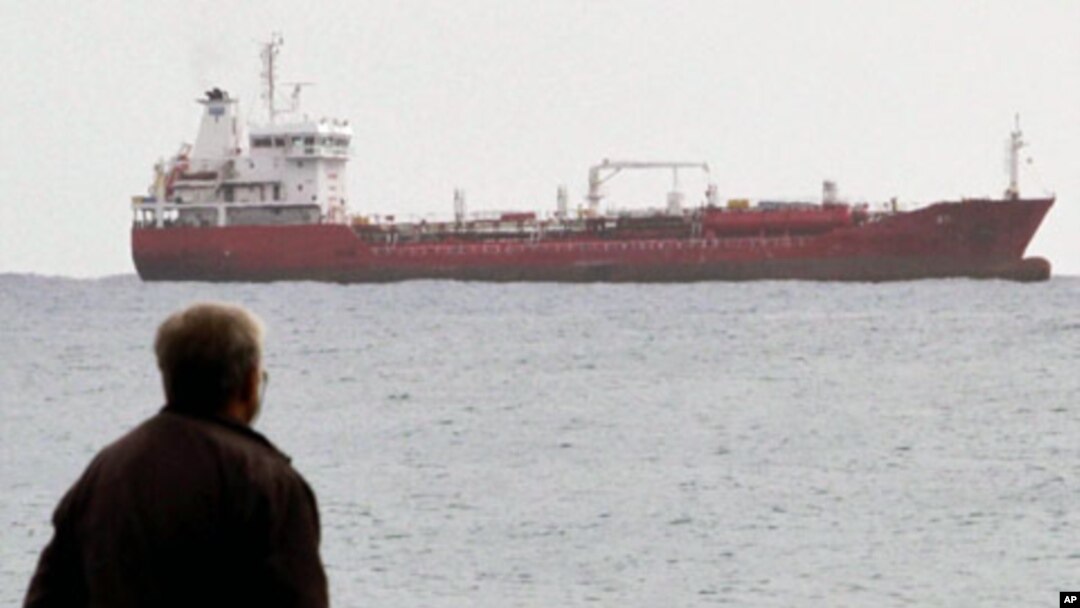A ship suspected of carrying tons of munitions bound for Syria is free to leave a port in Cyprus after changing its destination.
The Cypriot Foreign Ministry confirms a Russian ship suspected of supplying arms to the Assad regime in Syria had been released from port, after a brief detention by authorities.
The ship was forced to dock for refueling Tuesday at Limassol in western Cyprus, following bad weather.
Local media reported at least 35 tons of munitions and explosive material were onboard, with a Ministry of Foreign Affairs statement confirming customs officials had discovered four containers and a generator in the hold.
The statement added that the ship, identified as the Saint Vincent-flagged MV Chariot, also contained “a dangerous cargo.” The ship, which left the Russian port of St. Petersburg on December 9, has been refueled and will set sail when the rough weather in the eastern Mediterranean calms.
According to the Foreign Ministry statement, it was agreed that the ship would sail to an alternative location and not Syria, but details of the new destination have not been disclosed. The government of Cyprus, which is an European Union member, insisted the ship had not breached the terms of the EU ban on sending arms to Syria.
The statement also confirmed that port officials had not been able to check the entire cargo due to tight packing in the hold of the vessel.
An EU foreign policy spokesperson, Maja Kocijancic, said the bloc implemented a strict arms embargo on Syria in reaction to the Assad government's crackdown on the country's democracy movement.
"Overall regarding the situation in Syria, the European Union has a very sound position and specifically regarding the exports of arms," he said. "The European Union has already, in May, adopted all the necessary legal acts that provide for an embargo and exports to Syria of arms and also of equipment that could be used for internal repression."
The European Union has also banned 13 Syrian government officials from travelling anywhere in the 27-nation union and frozen the assets of those officials.
A spokesman for Amnesty International, James Lynch, said the organization is calling for decisive U.N. Security Council action by implementing a comprehensive embargo on Damascus.
"A comprehensive arms embargo is really the bare minimum that the international community should be considering on Syria," he said. "We also want to see Syria referred to the international criminal court."
Rami Abdul-Rahman, head of the British-based Syrian Observatory for Human Rights, said he was mystified as to why the Assad government should need to import weapons from abroad.
"Assad does not need weapons from outside Syria," he said. "Why do we need weapons from outside Syria? Already we got now about 500,000 from the Syrian army and I do not know how many hundreds of thousands from the Syria security forces. Why do they need weapons from outside?"
Weapons confiscated from a ship carrying arms to Syria were the cause of Cyprus’ largest peacetime disaster. Exactly six months ago tank shells and explosives found on an Iranian cargo ship seized by the U.S. Navy in January 2009 and stored in a naval base near Limassol exploded, killing 14 people.
Cyprus Releases Suspected Syrian Arms Ship

A man looks at the Saint Vincent-flagged "Chariot" cargo ship as it sails out of the port of the southern Cypriot city of Limassol, January 11, 2012.

